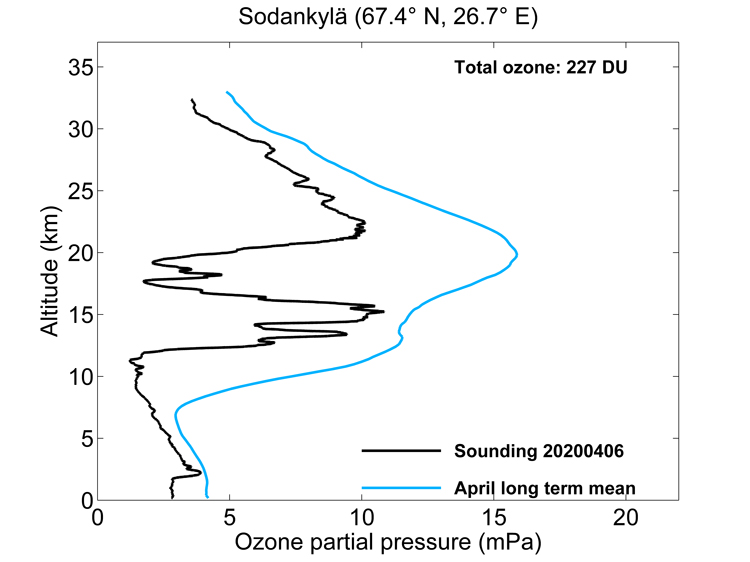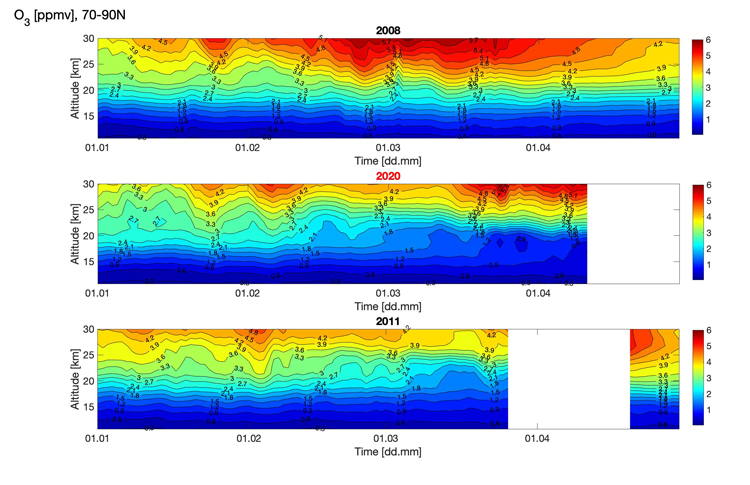Record-breaking Arctic ozone depletion in spring 2020
 Picture: Plugi / Tero Sivula
Picture: Plugi / Tero SivulaWhile the ozone hole over Antarctica appears every spring, such an event in the Arctic was observed only once in 2011. This year, it is observed for the second time in the whole observation history, and the ozone depletion was even stronger than in 2011.
"Satellite observations report the minimal values around 200 DU, while usually they are over 400 DU," says senior research scientist Viktoria Sofieva of the Finnish Meteorological Institute (FMI).
Animation: Total ozone column in DU as seen by OMI/Aura satellite instrument.
"Ozone soundings at Sodankylä and ozone profile measurements by MLS/Aura satellite instrument confirm that ozone in the polar vortex has been depleted by approximately 90% at altitudes of 18-20 kilometers," say FMI's senior research scientists Rigel Kivi and Monika Szelag.

Figure: ozonesonde profile over Sodankylä.

Figure: ozone profile evolution from MLS/Aura satellite data
In winter 2020, the polar vortex - a high-altitude cyclone of very cold air and swirling winds - was strong and stable. The colder the stratosphere is over the winter, the more of the reactive, ozone-destroying chemicals that build up. Extreme cold allows polar stratospheric clouds to form, and trigger ozone-depleting reactions.
"Finnish Meteorological Institute's forecasting system SILAM predicted very well the complicated structure of ozone hole during this season," says Professor Mikhail Sofiev, leader of the SILAM group at FMI. The 5-days forecasts are publicly available.
Further information:
Record low springtime total ozone column over Sodankylä (news on space.fmi.fi website 9.4.2020):
Unusual ozone hole opens over the Arctic (news on ESA website 6.4.2020)
Prof. Johanna Tamminen, Finnish Meteorological Institute, johanna.tamminen@fmi.fi, tel. +358 29 539 1000
Dr. Seppo Hassinen, Finnish Meteorological Institute, seppo.hassinen@fmi.fi, tel. +358 29 539 1000
Adj. Prof. Viktoria Sofieva, Finnish Meteorological Institute, viktoria.sofieva@fmi.fi, tel. +358 50 380 3413
Professor Mikhail Sofiev, Finnish Meteorological Institute, mikhail.sofiev@fmi.fi, tel. +358 50 329 0578
Senior scientist Rigel Kivi, Finnish Meteorological Institute, rigel.kivi@fmi.fi, tel. +358 29 539 2728